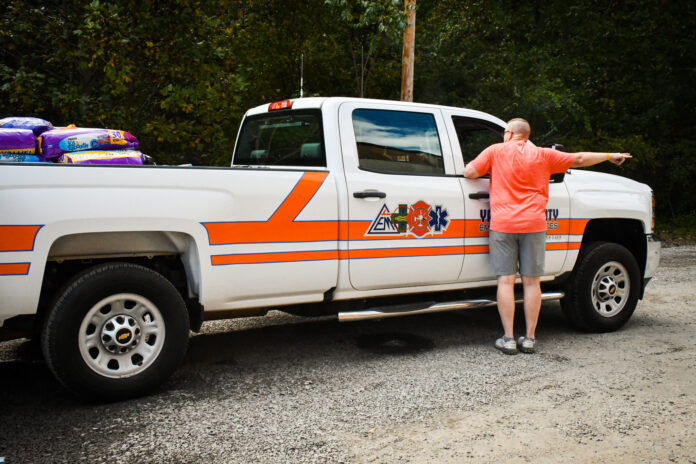“Hurricane Helene has left western North Carolina’s community colleges and their communities reeling,” says this press release from the N.C. Community College System. “Now, these colleges are stepping up to lead the recovery.”
More than 6,000 employees and nearly 74,000 students are impacted by the storm damage as colleges work to support their communities, the system currently reports, with many serving as emergency responses locations while working to reestablish campus operations.
“During this challenging time,” says State Board of Community Colleges Chair Tom Looney in this press release, “we have seen the strength of our system as presidents from across the state have stepped up to offer assistance to those affected.”
Within the 25 counties in the federal disaster declaration, there are 14 community colleges, including:
- Asheville-Buncombe Technical College, serving Buncombe and Madison
- Blue Ridge Community College, serving Henderson and Transylvania
- Caldwell Community College and Technical Institute, serving Caldwell and Watauga
- Catawba Valley Community College, serving Alexander and Catawba
- Cleveland Community College, serving Cleveland
- Gaston College, serving Gaston and Lincoln
- Haywood Community College, serving Haywood
- Isothermal Community College, serving Polk and Rutherford
- Mayland Community College, serving Avery, Mitchell, and Yancey
- McDowell Technical Community College, serving McDowell
- Southwestern Community College, serving Jackson and Macon (Swain is not included in the declaration)
- Tri-County Community College, serving Clay (Cherokee and Graham are not included in the declaration)
- Western Piedmont Community College, serving Burke
- Wilkes Community College, serving Alleghany, Ashe, and Wilkes
Based on our early reporting, we are most worried about Mayland Community College. We have been in touch with President John Boyd and Senator Ralph Hise. Stephanie Dischiavi who is with regional support for the N.C. Department of Public Instruction was on the ground there yesterday, and Deputy Superintendent Jeremy Gibbs will be there today. All three counties Mayland serves were particularly hard hit. I will be in these three counties next week.
The website says, “The NCCCS is in constant communication with the Governor’s office, Department of Public Safety/Emergency Management, and the General Assembly leadership regarding the hurricane’s impacts. A centralized email, recovery@nccommunitycolleges.edu, has been established for all disaster assistance communications and is monitored by senior leadership at the System Office.”
What role are the colleges playing in recovery?
EdNC’s Emily Thomas was on the ground in McDowell County on Monday, reporting with this story:
Thomas is now at Haywood Community College, and she reports that the community college — thanks to an investment in backup, emergency internet prior to the hurricane — is serving as a meeting space for community leaders who are working to assess and address county needs.
President Joel Welch at Western Piedmont Community College said in an email to us, “We are serving as an Emergency Operations Center and are shut down for this whole week to allow our campus to be used for that purpose.”
President John Gossett at Asheville-Buncombe Technical College spoke at the Buncombe County briefing yesterday. He said, “Before cell service went out last Friday, County Manager Avril Pender called me to ask for our help. The answer was an immediate and emphatic ‘YES.’ A-B Tech is proud to partner with local and state governments in the relief efforts. We have opened three buildings for disaster relief.”
Many of the linemen working to restore power were trained at our community colleges.
The EdNC team will continue to document the role of the community colleges in the recovery.
“With colleges at the heart of these communities,” the press release says, “the challenges they face directly impact the region’s recovery.”
To power their efforts, the North Carolina Community College System launched the Hurricane Helene Community College Response and Recovery Fund.
This statewide fund aims to support both the affected colleges and their surrounding communities as they face widespread damage and disruptions. Donations to the fund will provide critical assistance for recovery efforts in the storm’s aftermath, including restoring services and resources essential to students, faculty, and staff.
The fund will ensure that community colleges have the necessary support to help their communities and students get back on their feet.
“This fund is about helping our community colleges and their surrounding areas rise again,” said System President Jeff Cox. “By creating a statewide effort, we aim to empower these institutions to lead the recovery efforts, providing not just education but the essential support and hope their communities need during this challenging time.”
